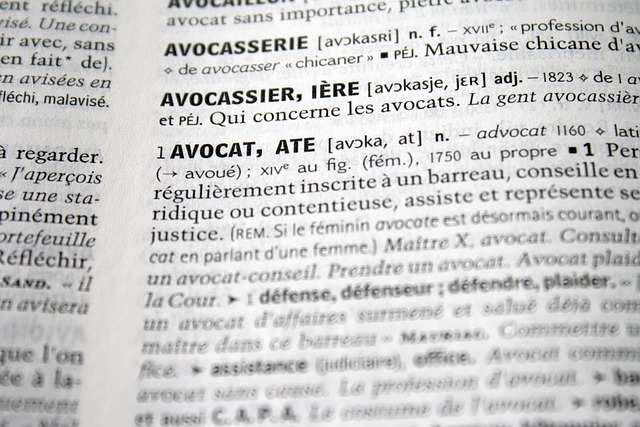Navigating Plea Bargains in Felony Cases is a strategic approach for individuals facing serious charges like public corruption. This process involves negotiating guilty pleas to reduce sentences or avoid trials, with attorneys guiding clients through complex legal decisions and rights. Post-plea sentencing requires balancing punishment based on crime severity and cooperation, impacting both the individual and setting precedents.
“Facing public corruption charges can be a daunting experience, but understanding your legal options is crucial. This comprehensive guide delves into the intricacies of navigating plea bargains in felony cases, offering insights into the process and its potential outcomes. From comprehending felony definitions to exploring plea bargain strategies, we explore every step. Additionally, learn about court proceedings, rights, consequences, and post-plea sentencing options. By the end, you’ll be equipped with knowledge to make informed decisions.”
- Understanding Felony Charges: Legal Definitions
- Plea Bargains: Benefits and Strategies for Accused
- Navigating Court Proceedings: Rights and Consequences
- Post-Plea Sentencing: Options and Outcomes
Understanding Felony Charges: Legal Definitions

Understanding Felony Charges: Legal Definitions
In legal terminology, a felony is a serious crime that is punishable by imprisonment for more than one year or by death, depending on jurisdiction and severity. Navigating plea bargains in felony cases is a complex process where accused individuals can potentially reduce their sentence or avoid indictment altogether. This strategy is especially prevalent in high-stakes cases involving white collar and economic crimes.
The legal definition of a felony varies across jurisdictions but generally includes crimes such as fraud, embezzlement, and certain types of violent offenses. When faced with felony charges, defendants often have the option to plead guilty or not guilty. Plea bargaining allows for an agreement between the defendant and prosecutor, where the defendant agrees to accept a reduced charge or sentence in exchange for pleading guilty. This approach can be particularly beneficial in avoiding a trial, which could lead to more severe consequences if convicted after a lengthy legal process.
Plea Bargains: Benefits and Strategies for Accused

Navigating Plea bargains in Felony Cases can be a strategic move for individuals facing public corruption charges. A plea bargain allows the accused to avoid a trial, potentially resulting in reduced charges or a lighter sentence. This strategy is particularly beneficial when the evidence against the defendant is strong and an indictment seems inevitable. By accepting a plea bargain, the individual can mitigate the damage to their reputation, save on legal fees, and gain some control over the outcome.
For those with an unprecedented track record of integrity, this approach might be a way to protect their public standing while acknowledging guilt. However, it’s crucial for accused individuals to understand the implications of a plea bargain, which can include admitting guilt, forfeiting certain rights, and facing conditions set by the court. A competent general criminal defense attorney can advise on the best course of action, ensuring clients are fully aware of the pros and cons before making such an important decision.
Navigating Court Proceedings: Rights and Consequences

Navigating court proceedings in public corruption cases can be a complex and daunting task. Individuals charged with felonies, particularly those involving bribery or abuse of power, face significant consequences. Understanding their rights is crucial to navigating this legal labyrinth. One common strategy, especially in felony cases, is negotiating a plea bargain. This process allows defendants to avoid indictment by pleading guilty to a lesser charge, potentially reducing the sentence and avoiding a trial.
A skilled defense attorney can help clients make informed decisions about plea bargains, ensuring they are aware of their rights and the potential outcomes. Given his clients’ unprecedented track record of successful defenses, an experienced legal counsel can guide them through this challenging phase, aiming to mitigate damage and secure the best possible outcome. This strategic approach can be vital in managing the consequences of public corruption charges.
Post-Plea Sentencing: Options and Outcomes

After a defendant enters a guilty plea during a felony case, the court proceedings shift to post-plea sentencing. This phase is crucial as it determines the outcome for both the individual and sets a precedent for similar cases. The options available often include various forms of punishment, ranging from probation and fines to imprisonment. The specific sentence is influenced by several factors, such as the severity of the crime, the defendant’s prior record (if any), and their cooperation with authorities during the investigation.
Navigating plea bargains in high-stakes cases can be complex, especially for those aiming to protect their interests and secure the best possible outcome for their clients. The process involves careful consideration of potential risks and benefits, as well as a thorough understanding of the legal system’s mechanisms. This strategic approach ensures that defendants make informed decisions, taking into account the outcomes of similar cases and the current legal landscape.
Understanding the legal process involved in public corruption charges is essential for anyone facing these serious accusations. By navigating plea bargains effectively, individuals can mitigate potential consequences and secure more favorable outcomes. This article has provided a comprehensive guide to help accused persons make informed decisions, exercise their rights, and explore options throughout court proceedings, ultimately emphasizing the importance of strategic legal representation during this challenging time.






